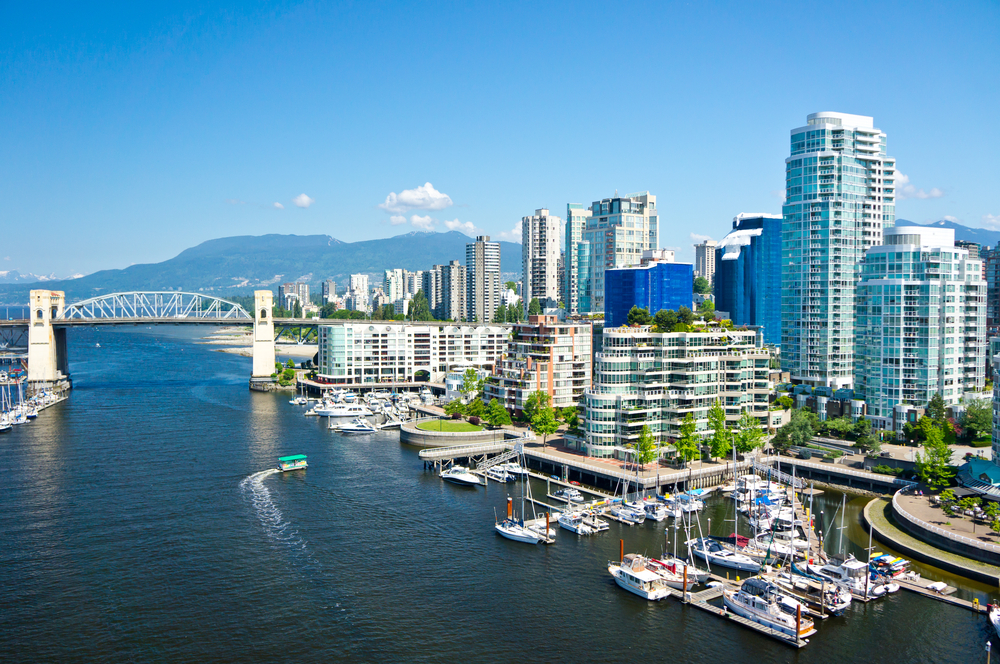
So you’ve been working for a while now and you’re thinking of purchasing your first property investment. That’s a great decision! Play your cards right and investing in property could potentially lead to immense financial benefits.
There are two main ways to invest in property: first, you can generate passive rental income by renting your unit to tenants, and second, you can sell the property for a profit when it increases in value (also known as capital gains from capital appreciation, or ‘flipping’ property).

As an investor, you also have the option investing in properties locally or in overseas markets. While the prospect of obtaining higher rental yields and returns for overseas property investments might be enticing to some – thanks to the infamous Additional Buyer’s Stamp Duty (ABSD) – others might be more comfortable investing in Singapore properties as they are more familiar with the market. Being in the same geographic location also makes it easier to manage properties and handle tenant relations.
In this guide, we will have a detailed look at the pros and cons of purchasing properties in Singapore versus overseas markets.
But first, let’s explore how the Singapore property market has done in the past and its current outlook.

Singapore’s Property Market at a Glance
Property prices in Singapore have been known to be higher compared to neighbouring countries in South East Asia, and in recent years, rental and resale prices for both HDB flats and private condominiums have been on an upward trend. Despite this, buyers are still snapping up properties, which prompt investors to continue to sell properties at even higher prices.
To keep housing affordable for Singaporeans and weed out speculators, the Government has introduced various measures to curb rising home prices. These countermeasures are aimed at stabilising property sales cycles and also make it harder for investors to turn a profit. We’ll go more into detail below.
As for the type of property, you have the option of purchasing either a commercial or a residential property. In some aspects, commercial properties might be the better option as it means you won’t have to pay the Additional Buyer’s Stamp duty (ABSD), and you may be able to obtain a bank loan at a higher Loan-to-Value (LTV) limit (up to 80%) compared to purchasing a residential property (up to 75%).

Financing An Investment Property in Singapore
Usually, an investment property will be your second or subsequent purchase (because most people own the home they live in and buy another for investment). This ‘complicates’ things and makes it slightly different from your first home purchase.
Firstly, even if you are Singaporean, if you are purchasing your second or third residential property, you would have to incur an Additional Buyer’s Stamp Duty (ABSD) of 12% and 15% of the property’s value respectively. One way around this is to buy a commercial or industrial property, but that’s a whole different ballgame altogether. Read more in this article: Should You Invest In Commercial Or Industrial Property To “Escape” ABSD?
Next, you may be limited by how much you can borrow. Unless you have enough cash or you’ve already paid off the mortgage for your current home (that you’re living in), you would have to take up a second mortgage for the investment property. Instead of the 75% maximum LTV for your first mortgage, the LTV which you can obtain would be capped at 45% for your second property. This means a whopping minimum 55% downpayment, which is no easy feat – especially when private properties are in the millions.
In addition, having an existing housing loan on hand contributes to your Total Debt Servicing Ratio (TDSR), which makes it more difficult for you to obtain a subsequent loan for your investment property.
If your investment plan is to ‘flip’ the property, do note that there is also a 3-year Seller’s Stamp Duty in place. Basically, if you sell your property before holding it for at least three years, you’d have to fork out 4% to 12%.
Should You Invest in Singapore Property?
If the above does not deter you and you still have the financial means for the property investment, go for it! We are unable to advise what properties to actually buy – you need a licensed financial advisor for such investment advice and management – but generally, properties in Singapore do well. Singapore is a popular market for property investments thanks to our political stability and good economic fundamentals.
In addition, you have the added advantage of being familiar with local property laws and regulations, which would minimise your legal risks when investing in Singapore properties. Furthermore, being in the same geographic location makes it so much easier for you to manage your properties and saves you the hassle of needing to navigate through complex overseas paperwork and banking systems when you intend to sell your property or evict an unruly tenant.
Here are some useful articles to get you started:
- Property Investment in Singapore: How to Get Started, Calculate Rental Yield and More
- Understanding Gross vs Net Rental Yields when Investing in Property
- Not Just Rental Yield vs Mortgage Rates: 6 Other Considerations When Investing in Property
Do note, however, that with housing prices on an upward trend, there are speculations that the Government would introduce further cooling measures to prevent the property market from ‘overheating’. Although this has not happened yet, if it does happen in the next few years, it could result in you incurring even more costs when purchasing your investment property.

Should You Purchase an Investment Property Overseas?
When it comes to overseas markets, some countries are better investment options than others.
Good standards of living and property options coupled with strong economic conditions makes countries like Canada and Australia ideal for property investors seeking stable returns on their investment. Elsewhere, foreign investors are exempt from paying taxes on rent in the UAE, with the average rental yield of 5.19% in the country being one of the highest in the world. Meanwhile, Germany’s low cost of living and income tax rates also makes it an ideal destination for real estate investments.
However, while investing in properties in these countries might seem like an attractive option, there are substantial risks that come with overseas property investments. It may not seem like a big deal, but many challenges stem from the fact you’re managing the investment from Singapore.
First off, you’ll need a large amount of capital to enter the market of your choice. There are also hidden costs associated with the overseas properties, from administrative fees like taxes to maintenance expenses like plumbing repairs and pest inspection costs which you need to take into consideration. You need to be sufficiently familiar with the market to understand these.
Next, you’ll probably need to fly over or engage help from an agent when you want to lease out or sell the property. You’d need to also go through complex paperwork and banking procedures, which again, may be unfamiliar. Also, if your overseas tenant happens to be unruly, the paperwork and legal procedure to evict that tenant might take months, and you might incur hefty damages on your property by the time the process is complete.
Finally, unlike Singapore, property prices in many overseas markets often fluctuate unpredictably.
Is it Possible for me to Purchase a Property Overseas?
If you are looking to purchase property overseas, it’s important to do your own research to first decide on an ideal country or region. Property investment ratings such as this one by the Global Property Guide give you an overview of the potential rental yield you can earn in property markets across various cities in the world.
Even if you are interested in overseas property investments, there are certain factors which you need to take note of. If you recently bought a HDB flat, Built-to-order (BTO) or resale, you will need to wait till your five-year Minimum Occupation Period (MOP) ends before you can purchase an overseas property. In addition, prior to investing overseas, it is also important to understand the foreign market that you wish to enter. This includes reading up on factors relating to the overseas market, such as real estate transaction volumes, interest rates and price trends of properties in the market you’re looking at.
In terms of financing, you can choose to get an overseas bank loan from a bank in Singapore, or borrow from a bank located overseas in your market of choice. If you choose a bank in Singapore, the mortgage will count towards your TDSR quota. You don’t need to pay ABSD for overseas properties and you cannot use your CPF Ordinary Account savings to finance any part of it. Learn more in this guide to buying overseas property.

So, Property Investments in Singapore or Overseas, Which Should You Consider?
Apart from the factors we’ve discussed above, other factors to consider when deciding which market to make property investments in include the geographic location and level of infrastructure present in the particular market, interest rates in the country, and property-related government policies in the respective jurisdictions.
Overall, investing in real estate in Singapore remains the safer option if you are a more risk-averse investor looking to generate stable returns on your property investments. However, if you have adequate capital and don’t mind putting in the hard work to understand the real estate climates and foreign property laws, then overseas real estate investments might prove to be a profitable venture for you.
Regardless of whether you choose to invest in properties in Singapore or overseas, doing your prior research is paramount to ensuring that you make a good investment choice! For more personalised home financing recommendations and strategies, reach out to PropertyGuru Finance home loan advisors – our honest expert advice free!

Disclaimer: Information provided on this website is general in nature and does not constitute financial advice.
PropertyGuru will endeavour to update the website as needed. However, information can change without notice and we do not guarantee the accuracy of information on the website, including information provided by third parties, at any particular time. Whilst every effort has been made to ensure that the information provided is accurate, individuals must not rely on this information to make a financial or investment decision. Before making any decision, we recommend you consult a financial planner or your bank to take into account your particular financial situation and individual needs. PropertyGuru does not give any warranty as to the accuracy, reliability or completeness of information which is contained in this website. Except insofar as any liability under statute cannot be excluded, PropertyGuru, its employees do not accept any liability for any error or omission on this web site or for any resulting loss or damage suffered by the recipient or any other person.

